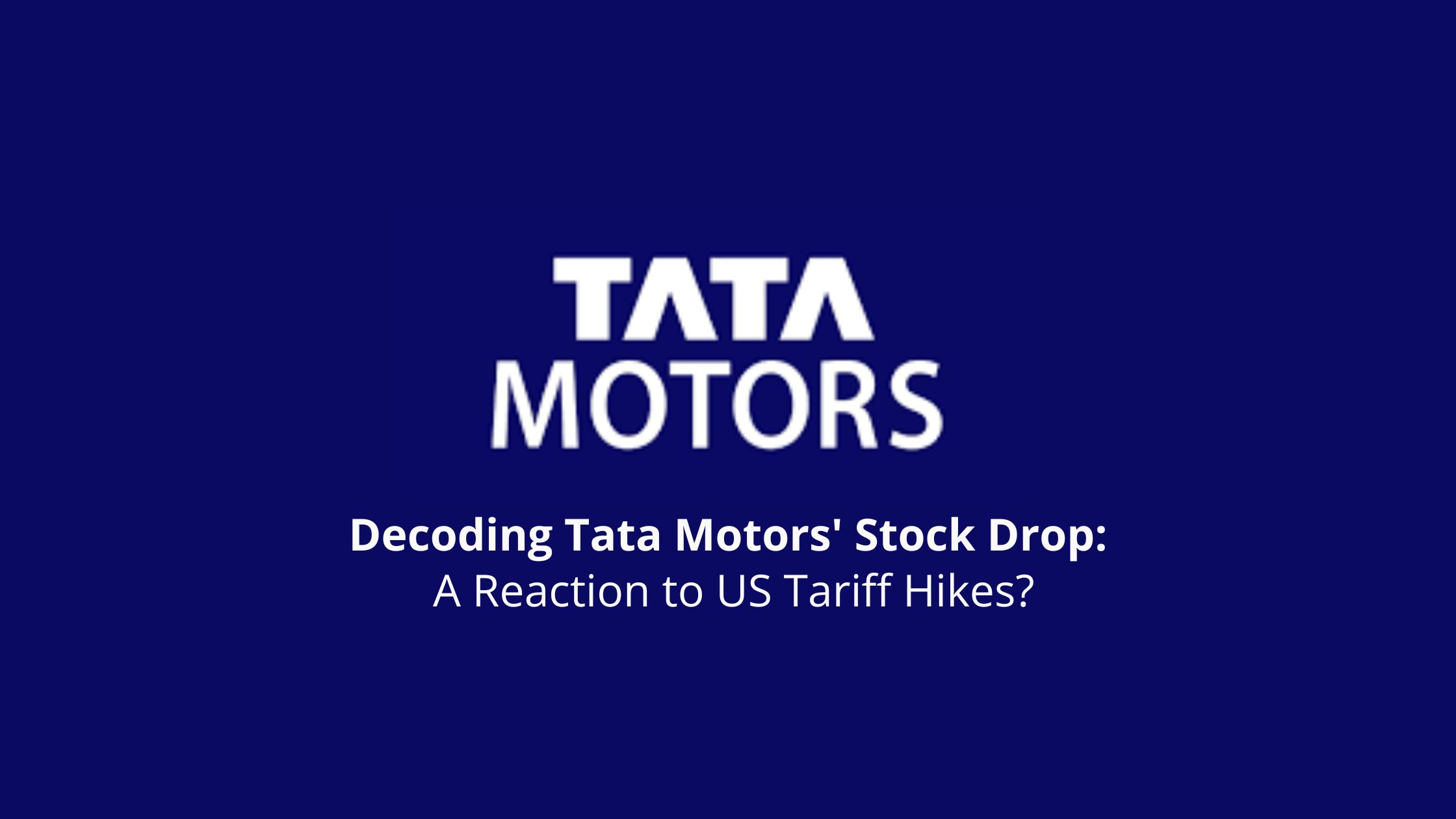
The global automobile industry is navigating turbulent waters, and Tata Motors is the latest to feel the impact. On April 3, 2025, the company’s stock declined by nearly 3%, closing at ?654.05 per share on the BSE. This downturn follows the implementation of new US tariffs on foreign-made automobiles, announced by the Trump administration on March 26. The policy shift has sent ripples through the auto sector, affecting both manufacturers and suppliers.
But what do these tariff hikes mean for Tata Motors and the Indian auto industry at large? Let’s break it down.
The US government’s new tariff policy, which came into effect at midnight on April 3, imposes higher duties on imported passenger vehicles, SUVs, crossovers, minivans, cargo vans, and auto components.
Tata Motors, as the parent company of Jaguar Land Rover (JLR), has a significant market presence in the United States, with the region contributing one-third of JLR’s global sales in 2024. The increased tariffs have raised concerns about higher costs and lower profit margins, leading to a dip in investor confidence.
Stock markets react swiftly to economic and geopolitical shifts. With the US imposing fresh import duties, analysts fear that higher vehicle prices could dampen demand for luxury brands like JLR, impacting Tata Motors’ revenue.
The negative sentiment has not only hit Tata Motors but also affected other Indian auto stocks:
The broader BSE Sensex also slipped by 322.08 points (0.42%), indicating that investors are wary of the new trade barriers.
With tariffs increasing the cost of imported vehicles, JLR may either pass on the cost to consumers (which could reduce demand) or absorb the cost, impacting profit margins.
Moreover, JLR’s competitors, such as BMW, Mercedes-Benz, and Tesla, have local manufacturing setups in the US, making them less vulnerable to these tariffs. This could put JLR at a competitive disadvantage if they don’t find a workaround.
To counteract these challenges, Tata Motors and JLR might:
While the short-term impact is evident, Tata Motors remains a strong player in the global automobile market. The company's long-term growth potential is backed by:
The decline in Tata Motors’ stock price is a natural market reaction to the uncertainty surrounding the US tariff hike. However, whether this is a temporary setback or a long-term concern depends on how effectively Tata Motors and JLR navigate these trade barriers. For now, investors should stay informed, track company updates, and evaluate the long-term fundamentals of Tata Motors before making investment decisions.
Would you buy Tata Motors stock at this dip or wait for further clarity? Share your thoughts on https://forms.gle/RMs3hVzHNBRPovLD7
Disclaimer: This article is for informational purposes only. Please consult a financial expert before making investment decisions.